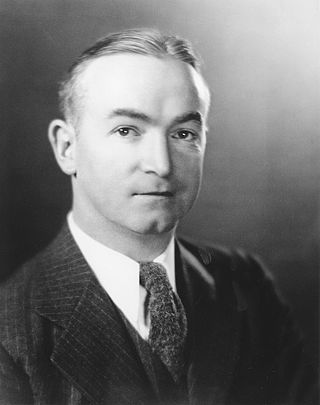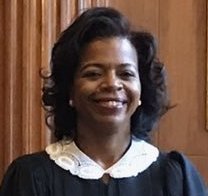
Isaac Beverly Lake Jr. was an American jurist and politician, who served as chief justice of the North Carolina Supreme Court.
Paul Martin Newby is an American judge, who was first elected to a seat on the North Carolina Supreme Court in 2004. He was elected Chief Justice in 2020.
Elon University School of Law is an American law school located in Greensboro, North Carolina, occupying the former downtown public library building. Established in 2006, Elon Law is one of nine graduate programs offered by Elon University. It earned full accreditation from the American Bar Association in 2011.

James Gooden Exum Jr. also known as Jim Exum is an American jurist who served on the North Carolina Supreme Court from 1975 to 1994, and as chief justice from 1986 to 1994.
Virginia Lynn Linder is an American judge from Oregon who served as the 99th justice of the Oregon Supreme Court from January 2007 until January 2016. She served on the Oregon Court of Appeals from 1997 until her election to the state's Supreme Court in the 2006, an electoral campaign in which she defeated former Labor Commissioner and Republican gubernatorial candidate Jack Roberts.

Homer Adams Holt was a West Virginia lawyer and politician who served as that state's 20th governor from 1937 to 1941. Born in Lewisburg, West Virginia, he attended the Greenbrier Military School there and then went on to graduate from Washington and Lee University in 1918, where he was a member of the Phi Kappa Psi fraternity. After serving in the army during World War I, he returned to Washington and Lee in 1920 and studied law, receiving his degree in 1923. In 1924, he married Isabel Wood.

One justice of the North Carolina Supreme Court and six judges of the North Carolina Court of Appeals were elected to eight-year terms by North Carolina voters on November 4, 2008. This coincided with the presidential, U.S. Senate, U.S. House, gubernatorial, and Council of State elections.

Cheri Lynn Beasley is an American attorney and jurist who served as the chief justice of the North Carolina Supreme Court from 2019 to 2020; she was appointed an associate justice in 2012. Beasley had previously served on the North Carolina Court of Appeals and as a district court judge in Cumberland County, North Carolina.
Suzanne Reynolds is a law professor and dean emerita at Wake Forest University School of Law. She is the first woman to head the school, and was named dean after serving four years as executive associate dean for academic affairs.

Robert Neal "Bob" Hunter, Jr. is a North Carolina lawyer and retired jurist formerly serving on the North Carolina Court of Appeals and on the North Carolina Supreme Court.
During his twelve years in office, President Franklin D. Roosevelt appointed eight new members of the Supreme Court of the United States: Associate Justices Hugo Black, Stanley F. Reed, Felix Frankfurter, William O. Douglas, Frank Murphy, James F. Byrnes, Robert H. Jackson, and Wiley Blount Rutledge. Additionally, he elevated sitting Justice Harlan F. Stone to chief justice. Roosevelt's nine nominations filled eight seats on the Supreme Court because Byrnes resigned while Roosevelt was still in office. Roosevelt nominated Rutledge to the seat vacated by Byrnes.

Several justices of the North Carolina Supreme Court and judges of the North Carolina Court of Appeals were elected to eight-year terms by North Carolina voters on November 5, 2002. Party primary elections were held on Sept. 10. This was the last year in which statewide judicial elections were partisan.

Four justices of the seven-member North Carolina Supreme Court and four judges of the 15-member North Carolina Court of Appeals were elected by North Carolina voters on November 4, 2014, concurrently with other state elections. Terms for seats on each court are eight years.

Harry Corpening Martin was an associate justice of the North Carolina Supreme Court, serving from 1982 to 1992. He was born in Lenoir, North Carolina.

Lucy Noble Inman is a judge of the North Carolina Court of Appeals and formerly served as a special North Carolina Superior Court judge. She won election to the appellate court in a statewide race on November 4, 2014.

One justice of the seven-member North Carolina Supreme Court and five judges of the 15-member North Carolina Court of Appeals were elected by North Carolina voters on November 8, 2016, concurrently with other state elections. Terms for seats on each court are eight years.

Three justices of the seven-member North Carolina Supreme Court and five judges of the 15-member North Carolina Court of Appeals were elected by North Carolina voters on November 3, 2020, concurrently with other state elections. Terms for seats on each court are eight years. These elections were conducted on a partisan basis.

Two justices of the seven-member North Carolina Supreme Court and four judges of the fifteen-member North Carolina Court of Appeals were elected by North Carolina voters on November 8, 2022, concurrently with other state elections. Terms for seats on each court are eight years. These elections were conducted on a partisan basis.







